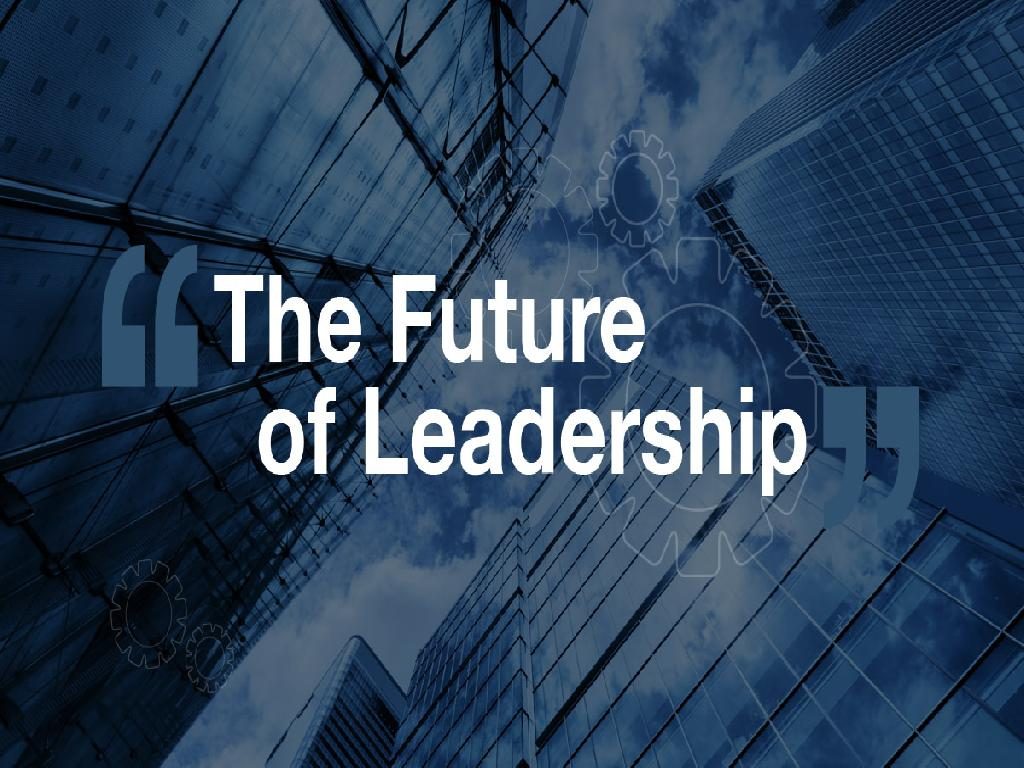It’s no secret that the ability to spot and nurture leadership is key to business success. But, as technology continues to revolutionise the way we live, work and lead, are we fully equipped for what lies ahead?
Organisations are facing unprecedented change
With 70% of leaders believing they need new talent and Skills. 75% of fortune 500 companies will use crowdsourcing talent by 2020, 57% of jobs today are vulnerable to automation and 17% of global execs are ready to manage a workforce with people, robots and AI working side by side…. are we fit as executives and leaders to manage the change?
If you want to go fast, go alone. If you want to go far, go together – African Proverb
Companies need to ‘Go Fast and Far’ and the pressure and complications to achieve this is ever more complicated even with the vast amounts of technology at our fingertips.
The World is moving fast, 90% of the worlds cloud data has been created in the last 3 years, this is staggering and shows the speed of growth just in the data sector as an example.
The majority of organisations struggle to identify future leaders within their business. This struggle is defined by a lack of planning and understanding, particularly when it comes to developing an active succession planning programme. Organisations don’t understand the challenges facing future business leaders and they are rarely offering employees leadership training ahead of appointments.
Working patterns are shifting
As flexible working impacts traditional working patterns and structures, and leaders contend with competing priorities and growing complexity of processes and systems, even basic management tasks can become difficult to perform, and then there’s digitalisation 2.0. Digital is no longer an emerging concept, it’s an embedded business practice – businesses need to identify leaders with the abilities to navigate in a digital world, and this is not without its challenges. Rapid technological developments, evolving customer needs, and changing attitudes towards work-life balance are giving way to a radical transformation of the ‘leadership’ we know today.

Trends are changing
With the rise of robotics (The Fourth Industrial Revolution) will have an impact of mass-mechanisation across wide sectors for both blue and white collar jobs. The next decade and beyond we will see robotization reduce the number of jobs available to a human workforce.
What does this mean for future leadership? By taking incremental action to support staff in regularly updating their skill sets through continuous training opportunities, and providing flexible career options, business leaders should be able to avoid widespread redundancies.
Work – Life Balance
Constant connectivity is resulting in disrupting the conventional 9 to 5. Its claimed that 50% of millennials use their mobile devices to complete work tasks at home and four in ten 16-24 year olds check their work emails in bed.
It’s expected that the wok-life balance becomes outmoded and the full work-life integration becomes the dominant model.
Leaders will need to be aware of and adjust to the potential psychological pressures associated with constant work-based connectivity, both as individuals and as an example for their employees. Leaders will also be expected to be more emotionally sensitive and prioritise mental health, while exhibiting extensive emotional control and mental optimisation. This skill will be highly valued. As these pressures continue to mount, we expect this balancing act to be an intensifying priority for future leaders.
Future Leadership
It is increasingly expected that leaders lead within an organisation and outside of it, through the medium of their online leadership brand – collecting an engaged community of followers whom they lead but don’t employ. To these people they play the role of thought leader, influencer and inspirer.
Social media sites have provided a leadership platform to increase visibility both inside and outside of organisations. They are already evolving to be more authentic and real-time through functionality such as Instagram Stories and Facebook Live and with immersive technologies like augmented, virtual reality developing rapidly, our demand for authentic interaction with those we admire will intensify accordingly.
Leaders will have to adapt to a more authentic approach to online image management to meet follower demand. There will be growing need for a more casual style of leadership, where interactions have to be (or at least, appear) unscripted and genuine. Leadership in this context will diversify as this micro-influence grows in prominence. Leaders should isolate the highly specific niche within which they can lead, and build a community around this specific interest.
So how as leaders can we be prepared for the speed and need of change?
You may have heard the advice that ‘our conversation within dictates our reality’, this is actually true.

- Your beliefs influence your behaviour.
One of the most basic ways that beliefs can shape reality is through their influence on behaviour—no quantum physics needed. For example, if you believe that you’re capable, competent, and deserving of your dream job, you’re probably more likely to notice and seek out opportunities that could help you get there. You’re also more likely to perform well in an interview.
- Your beliefs influence other people’s behaviour.
Your beliefs can shape your reality not only by influencing your own behaviour, but also by influencing other people’s behaviour, from close relationship partners to complete strangers.
Creating Reality
It’s important to change the conversation in our heads first so that we are focused on controlling our own reality before verbalizing and influencing others. We need to perceive and create our own world; this starts from within
It’s generally accepted that Leaders love solving problems, and as leaders become more experienced in solving problems, they become better and quicker at solving new problems.
If you like to solve problems – you are likely to meet a lot of problems
However great leaders ‘like to help others solve problems’, once you are able to help develop others to be able to solve problems, it means you will have less problems to solve and more time to focus on other areas.
Decisiveness gets results in leadership – as senior leaders are we focused too much on being decisive and solving problems or getting on achieving results on your own. The opposite is being inclusive – if the leader is over decisive then this can have a negative effect on leadership, it’s important to have the balance between being inclusive v’s decisive.
If we take 7 styles of leadership being Autocratic, Charismatic, Transformational, Laissez-faire, Transactional, Supportive and Democratic, we are aware that although as leaders we may have a natural style of leadership, we know the need to have agility and flexibility in these styles and mindful of the skill needed to utilize these styles as needed, therefore the future leaders need a mindful skill in adaptability in leadership styles
The speed of disruption in happening faster than ever. Soft skills are now becoming today’s hard skills, with more automation coming in the market, routine jobs are becoming more automated where complex roles will remain safe. Creativity leadership is now becoming a desire from many modern organizations.
Creativity, innovative problem-solving, and entrepreneurial spirit are all assigned high levels of social capital in today’s corporate world. ‘Start-up’ culture, with its emphasis on experimentation and pivots, is beginning to permeate the corporate mainstream.
Amongst bigger corporations we expect to see a growing culture of intra-preneurialism flourish. Corporations will support their employees in entrepreneurial activities, providing them with the time, space and independence required to develop creative endeavours. We will begin to see an increasing number of ‘Entrepreneur in Residence’ job titles or initiatives, where time is set aside for people to pursue their own projects
Leadership styles must evolve to manage a more creative and independent workforce. This will have structural and operational implications, as leaders grapple with a growth in the number of employees who will seek leadership in the non-traditional sense.
Don’t mind the Change – Change your Mind
Talent development
Proactively identifies, develops and retains quality talent within the organisation Focuses on how to best structure the team to create the most productive and inclusive culture possible. Has a strong drive to develop others and nurture a culture of self-improvement
Empowering decision-making
Always considering how initiatives and projects can benefit more than just one business area. Empowers teams to make decisions that support the growth of the business, beyond their immediate responsibilities. Investigates different viewpoints by actively seeking out open discussions with others, including senior stakeholders
Commercial strategy
Anticipates how long-term trends in the markets, economy and technology will impact the business. Develops ambitious business plans which link directly to creating competitive advantage and leveraging all team members’ skills. Willing to take risks and break rules with the understanding that it is natural to encounter problems and hurdles when pursuing a vision
Drives change
Proactively assumes responsibility for owning and driving change opportunities forward in all situations. Creates an environment where others are encouraged to innovate and openly rewards creativity in others. Leads by example: encouraging others to find creative solutions to business challenges
Shapes an inspirational culture
Creates an environment where all individuals in the team feel able to proactively contribute to and shape the business strategy. Continually inspires team members and colleagues to excel and share their opinions. Under pressure is still able to develop business/personal plans and make decisions based on calculated risks
Sources: MichaelPage & Deloitte
